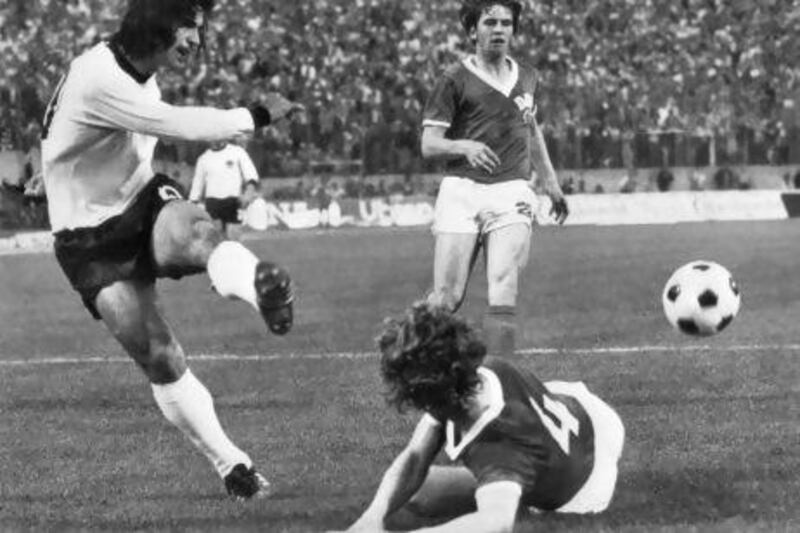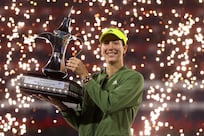Lionel Messi could break Gerd Muller's 40-year-old record for the most goals scored in a calendar year, but the lifestyles of "Der Bomber" and the magical Argentine could not be more different.
Messi's Barcelona are away to Real Betis tomorrow in the Spanish League, and he believes he might feature despite being carried off the field on Wednesday.
He has 84 goals so far in 2012, leaving him just one short of Muller's record tally of 85 set in 1972 for Bayern Munich and West Germany.
At the peak of his career - when he scored the winning goal in the 1974 World Cup final - Muller basked in the lofty status Messi now enjoys.
But having battled alcoholism since his retirement in 1981, his public appearances are limited now to the occasional Munich match and a German television milkshake advert alongside the current Bayern and Germany star Thomas Muller, who is not related to the former star.
"I ruined my life," Gerd Muller concedes.
He scored an astonishing 68 goals in his 62 appearances for his country. (Messi has 31 goals in 76 matches for Argentina.)
He bowed out on the international stage at just 28 years of age after hitting the winning goal in Munich as West Germany beat Holland 2-1 to win the 1974 World Cup.
Muller finished with 365 goals in 427 Bundesliga games, the last in 1979, when he was 33.
Messi has been instrumental in helping Barcelona enjoy a golden era in the club's rich history, and the same was true for Muller and Bayern in the 1970s. In 1965, Muller, Sepp Maier and Franz Beckenbauer inspired the club to promotion to the Bundesliga.
Munich became Bundesliga champions for the first time in 1969, before claiming three consecutive domestic titles, 1972 through 1974. The dream team then won the European Cup three times in succession, from 1974 to 1976.
"Everything that FC Bayern has become is due to Gerd Muller and his goals," said Beckenbauer, who captained Germany to the 1974 World Cup win and coached the 1990-title winning team.
Muller was the club's top scorer every season from 1964-65 to 1977-78, and the Bundesliga's leading marksman seven times. His collection of personal awards is just as impressive as the titles Bayern won.
At age 21, he was first voted German Player of the Year in 1967. In 1970, he became the first German to be crowned European Footballer of the Year after winning the top-scorer award at the Mexico 1970 World Cup.
He appeared three times in Fifa Select XIs (1971, 1972, 1973) as further proof of his exceptional status.
The football author David Winner wrote: "Muller was short, squat, awkward-looking and not notably fast; he never fit the conventional idea of a great footballer, but he had lethal acceleration over short distances, a remarkable aerial game, and uncanny goalscoring instincts. His short legs gave him a strangely low center of gravity, so he could turn quickly and with perfect balance in spaces and at speeds that would cause other players to fall over."
His playing career ended just short of his 36th birthday, in 1981, after a three-year spell in the short-lived North American Soccer League, and Muller admits he descended into deep crisis and began drinking heavily.
Bayern's current president, Uli Hoeness, helped get him back on his feet by offering him a contract in 1992; initially to look after sponsors, scout for talent and coach strikers and goalkeepers.
He later became a youth coach and first team assistant, earning his coaching badge and coached Bayern's amateur team in the 1990s.
He still helps to this day, and has been known to be a favourite table football opponent for Germany's Bayern midfielder Bastian Schweinsteiger.
Follow us
[ @SprtNationalUAE ]





